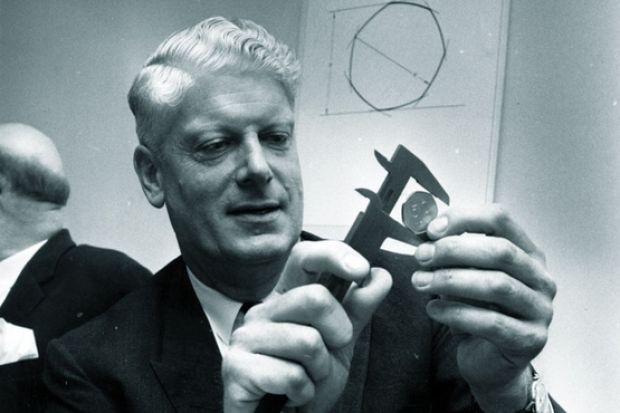Source: Getty
Coin it: the European Commission wants more structural funding to be spent on regional research and innovation
Higher education leaders have expressed concern that the UK may struggle to benefit from a growing source of research cash because of its lack of a structure for regional development.
According to the European Commission, from 2014, “more developed and transition” regions in the European Union, which includes most of the UK, will have to spend a much greater proportion of the investment they receive from EU structural funds on research and innovation.
In the funding period 2007-13, the UK received €23.9 billion (£20.4 billion) via this route. Across the EU, about 25 per cent of such funding was spent on research and innovation projects. Final allocations for 2014- 20 have yet to be agreed.
Under the new programme, access to funds, which must be matched by public or private investment, will be based on a policy of “smart specialisation”, with regions identifying particular strengths and matching them with business need.
David Drewry, vice-president of the European University Association, said that despite the great opportunity the move presented, a lack of regional organisation in the UK compared with other European countries would make securing the funding “that much more difficult”.
In some cases, local enterprise partnerships, created after the coalition government’s decision to scrap regional development agencies, may still provide “reasonably good” partners for universities to work with, he said. “But I suspect…it’s going to be the universities who are going to have to go out and mobilise interest in regional support,” he told a seminar on research and innovation on 14 March, organised by Westminster Higher Education Forum.
The government has indicated that it expects a significant proportion of the structural funding the UK receives from 2014 to be channelled via local enterprise partnerships.
On 18 March, in its formal response to No Stone Unturned: In Pursuit of Growth - a report on economic growth by former deputy prime minister Lord Heseltine - the government said it expected the 39 local enterprise partnerships to outline their investment strategies for structural funding by January 2014.
Meanwhile, it has also asked Sir Andrew Witty, chief executive of GlaxoSmithKline and chancellor of the University of Nottingham, to lead a review exploring how universities can support local enterprise partnerships and other organisations to drive growth in their area. Sir Andrew is expected to report in the summer.
Some regions of the UK, including the devolved nations, have already begun to lay out their plans for accessing the funds.
Sophie Laurie, head of international at Research Councils UK, said that her organisation was also working with other government bodies, including the Higher Education Funding Council for England, to formulate strategies in England, including where government money could be used to leverage EU funds. “While we don’t have a clear strategy in the way some…other countries do, we are trying to tackle it and realise the opportunity,” she said.
At the 14 March event, Richard Davies, vice-chancellor of Swansea University, highlighted a different issue - that too often UK regions’ strategies for seeking EU structural funds, which aim to avoid duplication, seemed to focus on similar fields of research. “The same areas appear in most of [their strategies]. Everyone wants to move into the same technology areas, in life sciences, nanotech and so on,” he said.
Structural funding has previously supported projects such as the University of Manchester’s planned National Graphene Institute and Combined Universities in Cornwall, a partnership to boost higher education prospects in the South West.




